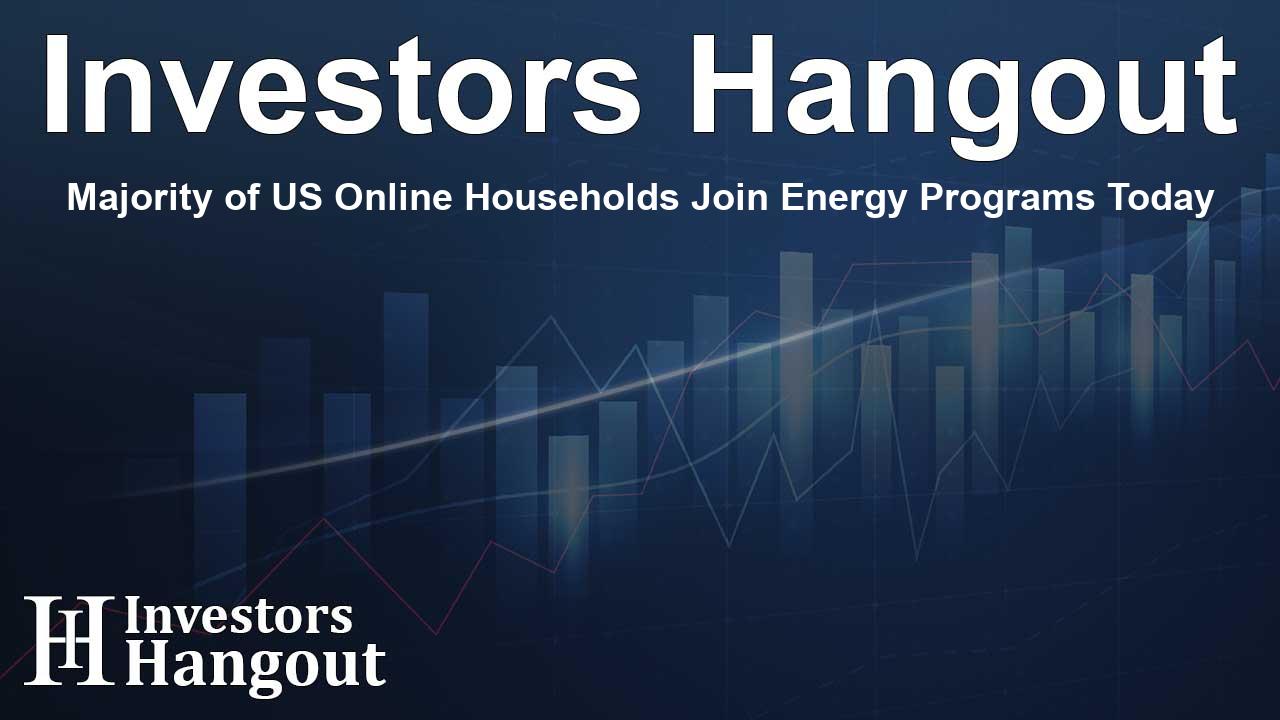Majority of US Online Households Join Energy Programs Today

Engagement in Energy Programs Among U.S. Households
Parks Associates has unveiled compelling findings indicating that 43% of U.S. internet households are currently participating in energy programs. This significant statistic was highlighted at the recent Smart Energy Summit, featuring insights from industry leaders such as NRG and Savant. The event, dedicated to exploring technological advancements in energy management, showcased the rising trend of Time-of-Use (TOU) rate plans, which have gained notable popularity among households.
Understanding Time-of-Use Rate Plans
Time-of-Use rate plans offer consumers a chance to save on energy costs by using electricity during off-peak hours. This approach not only aids in reducing monthly bills but also contributes to electricity grid stability by encouraging energy use at periods of lower demand. As energy usage patterns evolve, these plans are becoming increasingly integral to energy strategies within U.S. households.
The Role of Smart Home Technology
Smart home devices are transforming how households manage energy consumption. According to the findings presented at the summit, nearly 61% of households believe that their electricity costs are excessively high. The desire to cut costs has prompted many consumers to invest in smart technology designed to reduce energy usage. Utilizing connected devices enables users to monitor energy consumption in real-time, making it easier to manage their usage effectively.
Concerns Over Energy Costs
Many consumers express a sense of urgency regarding escalating electricity expenses. The Smart Energy Summit report highlighted that 50% of participants actively work on reducing energy consumption, while 36% of households reported needing assistance with energy management. An impressive 42% prefer to partner with their electricity provider to receive dedicated apps aimed at monitoring their energy usage.
Participation in Demand Response Programs
Despite the growing interest in energy efficiency, only 22% of smart thermostat owners are currently engaging in demand response programs. This element signifies a substantial opportunity for utility providers to enhance consumer education and participation, fostering better incentive structures.
Customer Experiences and Industry Feedback
Moreover, customer satisfaction remains a critical area of concern for electricity providers. The summit's findings revealed a concerning Net Promoter Score (NPS) of -25, indicating challenges in maintaining customer loyalty and satisfaction. This feedback opens up avenues for utilities to rethink their engagement strategies to improve overall consumer experiences.
Key Takeaways from the Smart Energy Summit
This year's Smart Energy Summit hosted a variety of keynote speakers bringing different perspectives on industry innovations. Some of the notable figures included Will Dillon from Savant and Jeff Gleeson from Renew Home, discussing cutting-edge solutions in energy management. Additionally, sessions included contributions from various sector leaders addressing topics ranging from sustainability to the integration of renewable energy sources.
Future Directions for Energy Management
As the energy landscape continues to evolve, discussions at the summit underscored the importance of collaboration among industry stakeholders. Engaging consumers more actively in energy management presents a unique opportunity to foster broader adoption of sustainable practices. With 16% of U.S. internet households reported to have installed heat pumps, there is a growing shift towards systems that optimize energy efficiency in homes.
Visit and Explore Smart Energy Innovations
The Smart Energy Summit not only showcases the latest trends but also offers a platform for networking and collaboration among energy professionals. For those involved in energy, smart home, and technology sectors, events like these are invaluable for fostering partnerships aimed at driving future innovations and enhancing home energy efficiency.
Frequently Asked Questions
What is the Smart Energy Summit about?
The Smart Energy Summit is an event that focuses on energy management, renewable energy adoption, and providing insights on the future of energy technologies.
How many U.S. households participate in energy programs?
Currently, 43% of U.S. internet households are enrolled in energy programs aimed at promoting efficient energy consumption.
What are Time-of-Use rate plans?
Time-of-Use (TOU) rate plans allow consumers to pay less for electricity used during off-peak times, incentivizing usage when demand is lower.
What is the current customer satisfaction score for energy providers?
The Net Promoter Score (NPS) for electricity providers is noted at -25, highlighting significant challenges in customer satisfaction.
How can smart home technology help reduce energy use?
Connected smart home devices enable households to monitor and manage their energy consumption, leading to potential savings on utility bills and increased energy efficiency.
About The Author
Contact Thomas Cooper privately here. Or send an email with ATTN: Thomas Cooper as the subject to contact@investorshangout.com.
About Investors Hangout
Investors Hangout is a leading online stock forum for financial discussion and learning, offering a wide range of free tools and resources. It draws in traders of all levels, who exchange market knowledge, investigate trading tactics, and keep an eye on industry developments in real time. Featuring financial articles, stock message boards, quotes, charts, company profiles, and live news updates. Through cooperative learning and a wealth of informational resources, it helps users from novices creating their first portfolios to experts honing their techniques. Join Investors Hangout today: https://investorshangout.com/
The content of this article is based on factual, publicly available information and does not represent legal, financial, or investment advice. Investors Hangout does not offer financial advice, and the author is not a licensed financial advisor. Consult a qualified advisor before making any financial or investment decisions based on this article. This article should not be considered advice to purchase, sell, or hold any securities or other investments. If any of the material provided here is inaccurate, please contact us for corrections.
